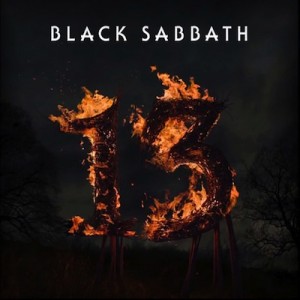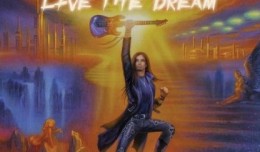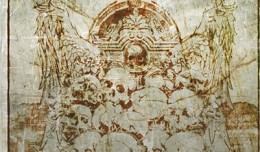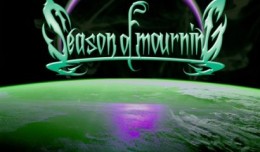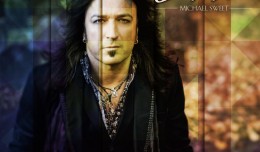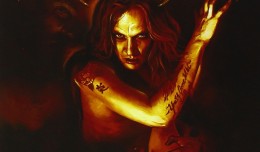Review
13 is a matter of life and death for Black Sabbath. The harsh truth of the matter is the godfathers of heavy metal may not be long for this world. Tony Iommi’s cancer scare has certainly given them pause to consider their own mortality, and if Iommi is to be believed, it was his health concerns that led Sabbath to move on without original drummer Bill Ward and get 13 made with someone else – namely, Brad Wilk, of Rage Against the Machine and Audioslave fame. Time waits for no one, not even Black Sabbath.
The grim reaper hasn’t come knocking on their doors just yet, however. As 13 proves, Sabbath is, thankfully, still alive and kicking up a monstrous racket of doom-laden metal that’s reminiscent of that haunting and truly unsettling first Sabbath album that signaled such a turbulent sea change in rock music. Rife with meditations on dying and the afterlife, as well as existential thoughts on whether the Almighty still has a pulse, 13 is the heaviest, blackest tar Sabbath has stirred in decades, just as producer Rick Rubin intended. And yet, some of that sludge Sabbath is so famous for has been washed off, cleaned so that the brass-knuckled sound of 13 crushes bones, allowing that serrated edge to Iommi’s crunching, growling riffs and his intensely focused solos to saw through steel, throwing showers of sparks into the air.
Inhabiting both heaven and hell, with sympathy for the devil and his Maker, the lurching 8:52 first single “God is Dead” seems to move in slow motion – as if sizing up its prey – right up to the bridge, which twists and swings like a bridge during an earthquake. Surging with energy, as Iommi’s guitar slashes like a broadsword, it seems as if Sabbath has discovered an ancient and evil groove, pulled out of the ground by its roots by Geezer Butler’s brawny bass lines and reanimated for the garment-rending, circling menace of “Live Forever.” That survival instinct is kicking in, although the grave doesn’t seem like such a bad option on the rest of 13.
Stretching out long past seven minutes, as most tracks on 13 do, the gnarled psychedelic-blues of “Damaged Soul” ponderously crawls through the wreckage of a life in ruins, while “Dear Father” is a slow, steady climb up a mountain of emotional garbage – left over from a broken relationship with a not-so loving parent. And “Loner” is almost as depressing, as Iommi stacks cement blocks of riffs to create a movable wall of thick, impenetrable sound – the kind the subject of the song might build internally to shut out the outside world.
Mangled guitars, writhing bass lines and crashing drums surround Ozzy’s rather dour vocals, sitting in the low register to fit 13’s downtrodden mood like a velvet glove. Shifts in tempo and melodic current occur, but they are not abrupt. Sabbath flows easily from detour to detour, never needing a GPS to find their way back to the main road – although it’s easy to get lost in “Zeitgeist,” the conga drums and sparse acoustic wisps of smoke bringing to mind “Planet Caravan.” Sabbath’s past is omnipresent on 13, which makes the whole concept of the record seem calculated and not as naturally or organically inspired as perhaps it should appear.
Nevertheless, 13 is a lucky number for Sabbath. The album bearing those numerals has given them their first No. 1 record in 43 years. Maybe God isn’t dead after all.
Label: Universal Republic









